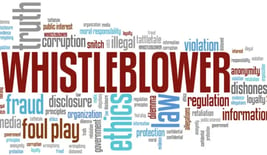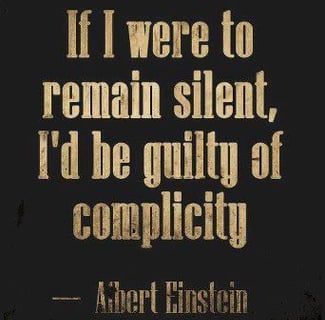Our Expertise
Our team are specialists in conducting comprehensive, timely and cost effective workplace investigation services to both the public and private sectors.
Our team have a unique investigative skill set developed through formal qualifications, relevant industry training, and extensive exposure to conducting workplace investigations that are diverse in nature, seriousness and sensitivity.
Workplace investigations within the public sector often commence after an employee of a public sector entity raises allegations of conduct that would be:
a danger to health and safety of a person with a disability
a danger to public health or safety
a danger to the environment
a commission of an offence or contravention of specific legislation that would be dangerous to the environment
a reprisal
corrupt conduct
maladministration
misuse of public resources
These complaints are referred to as Public Interest Disclosures (PIDs).
The legislative requirements of PIDs add an additional layer of complexity over public sector workplace investigations.
Our team have worked closely with PIDs and demonstrate adherence to the legislative requirements of confidentiality and protections afforded to PIDs when undertaking public sector PID investigations.


Our Ethical and Legal Framework when providing Workplace Investigation Services
While every investigation is unique in its facts and circumstances, our investigation process will generally consist of the following steps:
Agree on the scope and terms of reference of the investigation following an initial review of the complaint material
Prepare an investigation plan in accordance with the scope and terms of reference
Develop a communication protocol detailing the requirements for communicating with all parties involved in the investigation
Interview the complainant and relevant witnesses
Gather and collate relevant information and evidence identified during the investigation
Formulate the allegations against the respondent and provide notice of the details of the allegations
Interview the respondent
Interview any additional witnesses
Prepare transcripts or statements of witness evidence
Evaluate and analyse the information and evidence collated
Draft findings of fact that are made on the evidence based on a balance of probabilities
Prepare and deliver a comprehensive investigation report setting out the findings of fact
Our investigation process adheres to the two key principles of procedural fairness:
Impartiality and lack of bias on the part of the investigator
The respondent is given an opportunity to respond to the allegations prior to findings being made
We tailor our investigation services to suit your business needs and to withstand legal scrutiny.
Connect with us today to discover how we can help you resolve workplace misconduct and wrongdoing, and build a positive workplace culture.


Investigation Process
Professional Responsibilities of Investigators
Our talented and skilled team have collectively contributed to our success in delivering workplace investigation solutions to our clients, and are dedicated to providing superior investigation services to resolve any workplace misconduct your organisation may be experiencing.
Our success is founded on our team possessing a unique investigative skillset, legal practice experience in criminal and administrative law, and extensive hands-on experience conducting workplace investigations relating to a diverse range of workplace allegations and complaints.
Our team will adhere to the following professional responsibilities when delivering workplace investigation solutions to your organisation:
Preserve confidentiality and integrity of the investigation
Provision of procedural fairness by acting impartially, fairly and without bias, and giving the respondent of the investigation an opportunity to respond to the allegations before findings are made
Consider all information relevant to the investigation
Provide clear and transparent reasons for any findings made
Progress the investigation efficiently and without undue delay
Types of Investigations


Preliminary Inquiries
Preliminary inquiries are often undertaken to determine whether there is a specific allegation capable of investigation, whether or not a complaint has been made.
This involves a review of available information, and if a specific complaint has been made, a review of the complaint material.
If there is a complainant, an interview will be conducted to ascertain additional relevant information. Potential respondents are also identified at this stage.
Once preliminary inquiries have been conducted, a short report making recommendations for further action will be provided.


Investigation on the papers


Full Investigation
An investigation on the papers involves an examination of all available documentary, visual or electronic evidence to make findings of fact.
It is expected that the evidence will include a written response and relevant material from the complainant, respondent and other informed parties.
At the conclusion of the examination, a report will be provided detailing factual findings reached on a balance of probabilities.
A full workplace investigation involves an investigator managing the entire investigation process from conducting an initial interview with the complainant to providing a comprehensive investigation report detailing findings of fact that are made on a balance of probabilities based on an examination of all relevant evidence.
Our investigation process is addressed in further detail below.


Review
When an allegation of wrongdoing has been made but no findings of fact are capable of being made out, a review is often undertaken for the purpose of providing observations about what appears to have happened and to identify any need for further action by an organisation.
The review process involves a consideration of all available information and evidence regarding the complaint or workplace concern.
At the conclusion of the review, a short report will be provided.


Investigation of corrupt conduct
There is a statutory obligation on local and state public sector entities to report allegations of corrupt conduct to an anti-corruption agency.
When an allegation is referred to an anti-corruption agency, they will assess the allegation and make a determination on how best to deal with the complaint. This commonly results in the anti-corruption agency referring the complaint back to the local or state public sector entity to investigate. These investigations are often subject to monitoring or auditing by the anti-corruption agency.
Investigations subject to monitoring by the anti-corruption agency generally require the local or state public sector entity to report back to the anti-corruption agency within specified timeframes during the course of the investigation.
Our team is proficient in conducting investigations where allegations of corrupt conduct referred to an anti-corruption agency have been referred back to local and state public sector entities for investigation.
These investigations are conducted expeditiously, comprehensively and in accordance with applicable internal policies and guidelines to ensure compliance with the reporting obligations set by the anti-corruption agency.
Our Specialty
Investigation of inappropriate conduct by elected officials
At present, there are two Australian states that have independent integrity bodies established to investigate misconduct of local government elected officials.
In Queensland, low level councillor conduct, considered as 'inappropriate conduct', is referred to the local government for investigation. Examples of inappropriate conduct:
A councillor contravenes a Code of Conduct, policy, procedure or resolution of the local government
A councillor contravenes an order of the chairperson of a council meeting to leave or stay away
A councillor receives orders for unsuitable meeting conduct three times in one year.
It is the responsibility of the local government to investigate inappropriate conduct of a councillor in accordance with its internal investigation policy and in compliance with the local government principles.
Our team is skilled in working with and conducting investigations on behalf of the local government into allegations of inappropriate conduct by an elected official.
Investigation of inappropriate workplace behaviour
Our team are experts in conducting confidential and impartial investigations in relation to complaints and allegations involving:
Unauthorised access and disclosure of confidential information
Reprisal for making a complaint or public interest disclosure
Conflict of Interest
Secret commissions and official corruption
Bribery involving elected officials
Extortion
Sexual assault
Bullying and harassment
Misuse of authority for a benefit or to cause a detriment
Favouritism during procurement, recruitment processes
Fraud
Falsification of records
Discrimination
Stealing
Assault
Misappropriation or unauthorised use of resources
Failure to comply with policy, code of conduct or legal/statutory obligations
Unprofessional personal conduct
Substance abuse at work
Public Interest Disclosure Investigations
All forms of inappropriate workplace behaviour, for example bullying and harassment, can have a devastating impact on your organisation if left unresolved.
Investigations involving allegations of bullying or harassment are complex and challenging. Our team recognises there is a distinct difference between conduct that is bullying and conduct that is harassment.
Our team applies an objective 'reasonable person' test when investigating allegations of bullying, and will make findings as to what conduct actually occurred, and if the conduct constitutes bullying, as defined in the Fair Work Act 2009 (Cth) and/or applicable internal anti-bullying policies.
Sexual harassment in Australia is unlawful.
Investigations involving allegations of sexual harassment are unique in that they require a greater understanding of the nature and sensitivity of the conduct alleged, and the risks to the physical and mental health of the parties involved.
The sensitivity of sexual harassment allegations requires a greater emphasis on ensuring investigations are conducted with a heightened focus on maintaining confidentiality and the privacy of the parties involved.
Given the nature and sensitivity, we manage sexual harassment investigations to ensure they are conducted with a heightened focus on maintaining confidentiality and privacy of the parties involved, as well as mitigating the risks of reputational damage and impacts on the health and safety of the parties involved.
Our team applies an objective 'reasonable person' test when investigating allegations of sexual harassment to determine whether a reasonable person would have anticipated the complainant would be offended, humiliated and/or intimidated by the conduct.
In all instances, we ensure investigations involving inappropriate workplace behaviour are conducted fairly and in accordance with natural justice principles.













